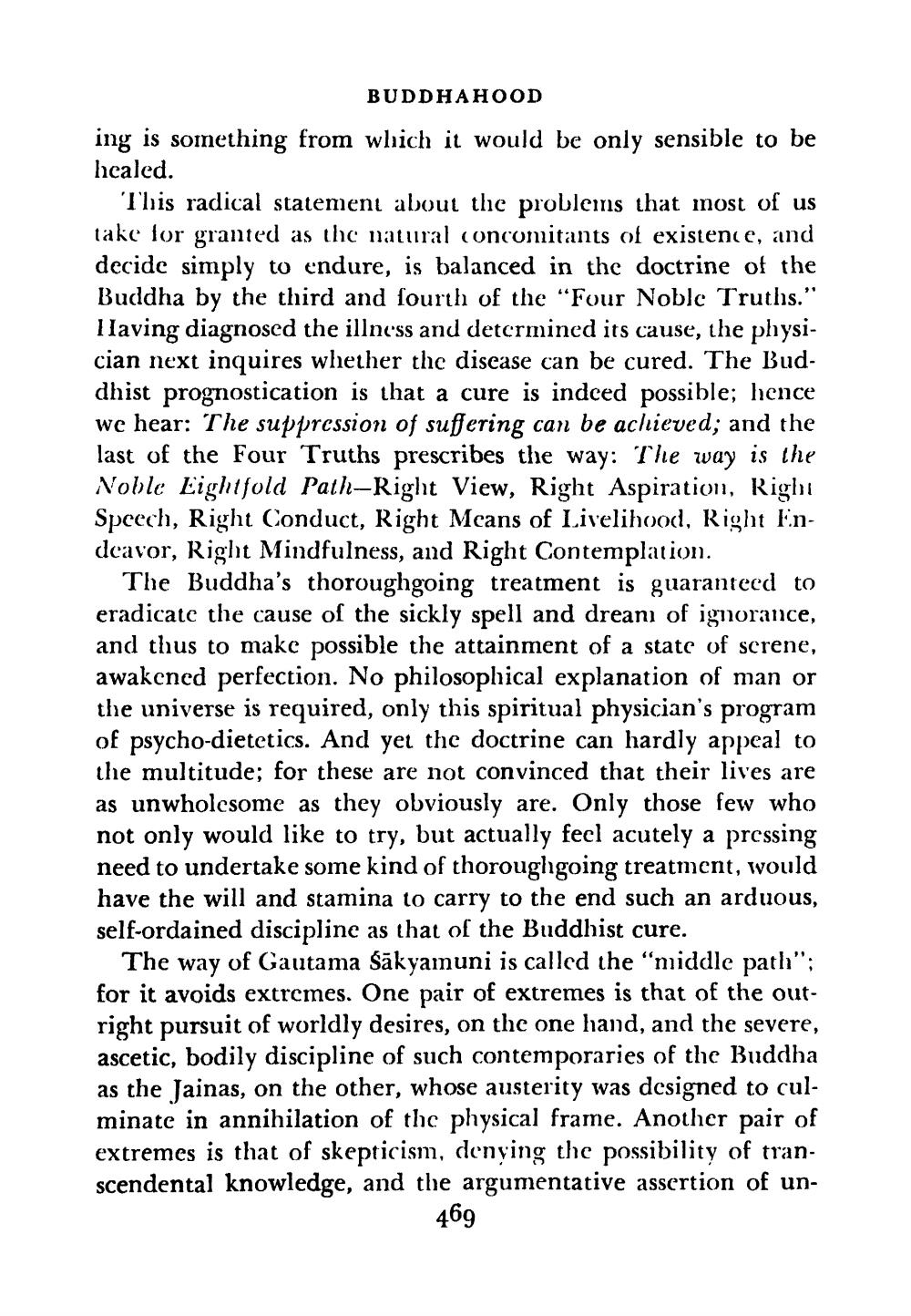________________
BUDDHAHOOD
ing is something from which it would be only sensible to be healed.
This radical statement about the problems that most of us take for granted as the natural concomitants of existence, and decide simply to endure, is balanced in the doctrine of the Buddha by the third and fourth of the "Four Noble Truths." Having diagnosed the illness and determined its cause, the physician next inquires whether the disease can be cured. The Buddhist prognostication is that a cure is indeed possible; hence we hear: The suppression of suffering can be achieved; and the last of the Four Truths prescribes the way: The way is the Noble Eightfold Path-Right View, Right Aspiration, Right Speech, Right Conduct, Right Means of Livelihood, Right Endeavor, Right Mindfulness, and Right Contemplation.
The Buddha's thoroughgoing treatment is guaranteed to eradicate the cause of the sickly spell and dream of ignorance, and thus to make possible the attainment of a state of serene, awakened perfection. No philosophical explanation of man or the universe is required, only this spiritual physician's program of psycho-dietetics. And yet the doctrine can hardly appeal to the multitude; for these are not convinced that their lives are as unwholesome as they obviously are. Only those few who not only would like to try, but actually feel acutely a pressing need to undertake some kind of thoroughgoing treatment, would have the will and stamina to carry to the end such an arduous, self-ordained discipline as that of the Buddhist cure.
The way of Gautama Sakyamuni is called the "middle path"; for it avoids extremes. One pair of extremes is that of the outright pursuit of worldly desires, on the one hand, and the severe, ascetic, bodily discipline of such contemporaries of the Buddha as the Jainas, on the other, whose austerity was designed to culminate in annihilation of the physical frame. Another pair of extremes is that of skepticism, denying the possibility of transcendental knowledge, and the argumentative assertion of un
469




